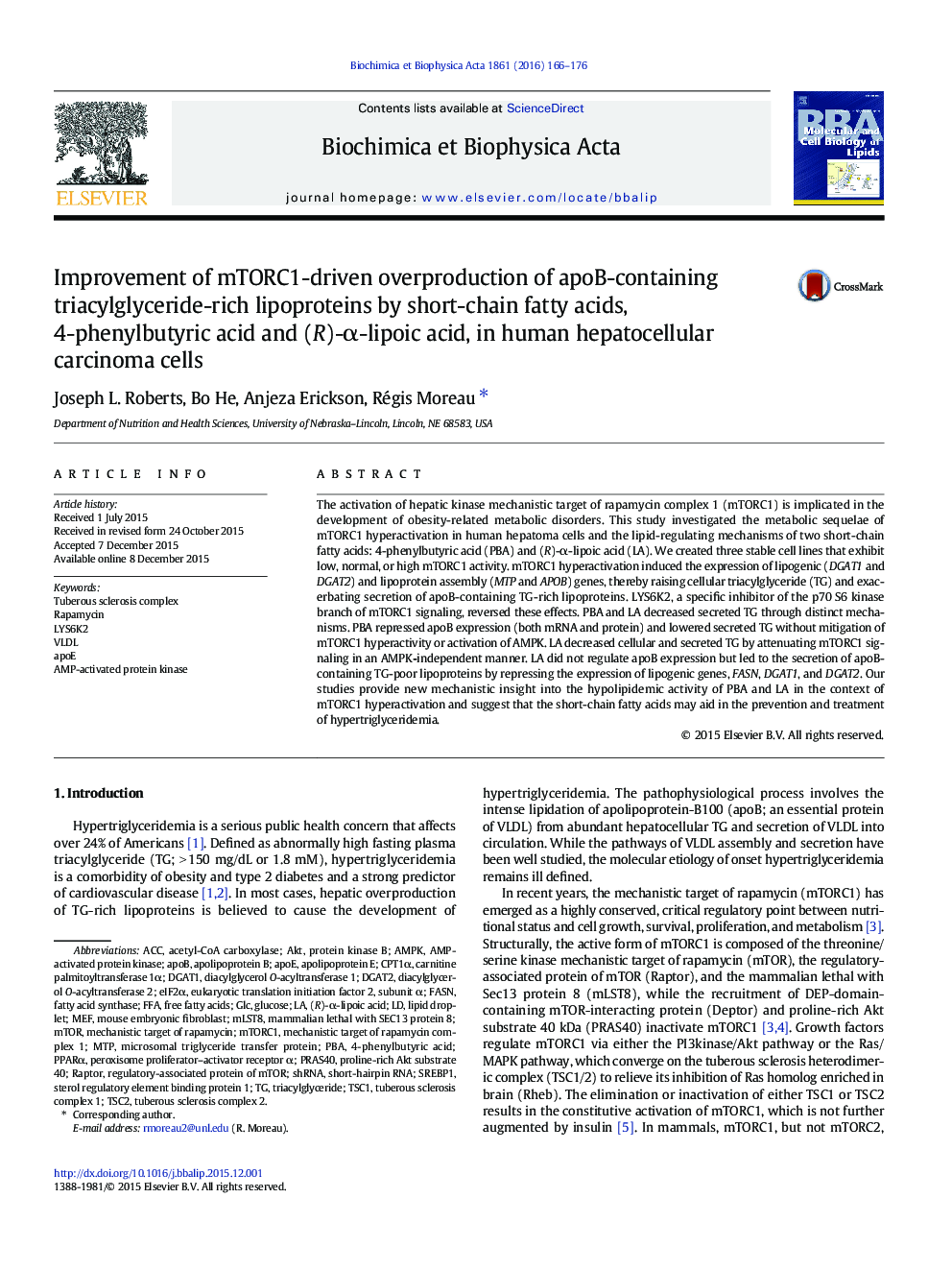| Article ID | Journal | Published Year | Pages | File Type |
|---|---|---|---|---|
| 1949055 | Biochimica et Biophysica Acta (BBA) - Molecular and Cell Biology of Lipids | 2016 | 11 Pages |
Abstract
The activation of hepatic kinase mechanistic target of rapamycin complex 1 (mTORC1) is implicated in the development of obesity-related metabolic disorders. This study investigated the metabolic sequelae of mTORC1 hyperactivation in human hepatoma cells and the lipid-regulating mechanisms of two short-chain fatty acids: 4-phenylbutyric acid (PBA) and (R)-α-lipoic acid (LA). We created three stable cell lines that exhibit low, normal, or high mTORC1 activity. mTORC1 hyperactivation induced the expression of lipogenic (DGAT1 and DGAT2) and lipoprotein assembly (MTP and APOB) genes, thereby raising cellular triacylglyceride (TG) and exacerbating secretion of apoB-containing TG-rich lipoproteins. LYS6K2, a specific inhibitor of the p70 S6 kinase branch of mTORC1 signaling, reversed these effects. PBA and LA decreased secreted TG through distinct mechanisms. PBA repressed apoB expression (both mRNA and protein) and lowered secreted TG without mitigation of mTORC1 hyperactivity or activation of AMPK. LA decreased cellular and secreted TG by attenuating mTORC1 signaling in an AMPK-independent manner. LA did not regulate apoB expression but led to the secretion of apoB-containing TG-poor lipoproteins by repressing the expression of lipogenic genes, FASN, DGAT1, and DGAT2. Our studies provide new mechanistic insight into the hypolipidemic activity of PBA and LA in the context of mTORC1 hyperactivation and suggest that the short-chain fatty acids may aid in the prevention and treatment of hypertriglyceridemia.
Keywords
TSC1eIF2αMTPapoBPBAAMPKVLDLCpt1αDGAT2DGAT1mTORC1diacylglycerol O-acyltransferase 2SREBP1TSC2PRAS40diacylglycerol o-acyltransferase 1mLST8proline-rich Akt substrate 40tuberous sclerosis complex 1shRNAACCPPARαGlcmTORFFAMEFAMP-activated protein kinaseshort-hairpin RNAApoeApolipoprotein Bapolipoprotein EAktacetyl-CoA carboxylase4-phenylbutyric acidfatty acid synthaseFree fatty acidsTriacylglycerideRapamycinRaptorFasnlipid dropletmouse embryonic fibroblastMechanistic target of rapamycinmechanistic target of rapamycin complex 1Sterol regulatory element binding protein 1microsomal triglyceride transfer proteinregulatory-associated protein of mTORprotein kinase Btuberous sclerosis complex 2carnitine palmitoyltransferase 1αTuberous sclerosis complexGlucose
Related Topics
Life Sciences
Biochemistry, Genetics and Molecular Biology
Biochemistry
Authors
Joseph L. Roberts, Bo He, Anjeza Erickson, Régis Moreau,
